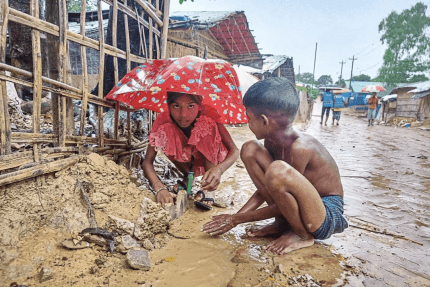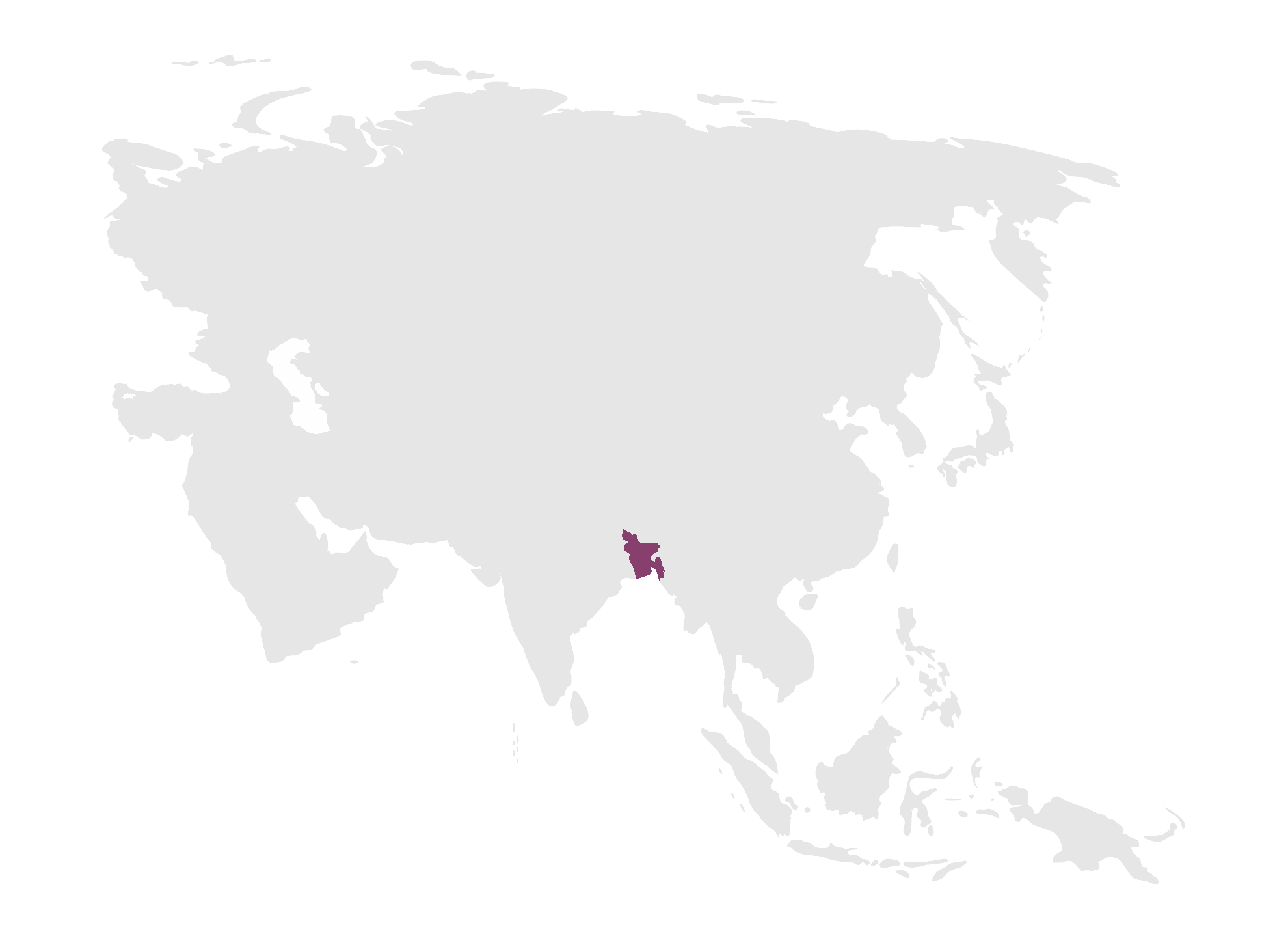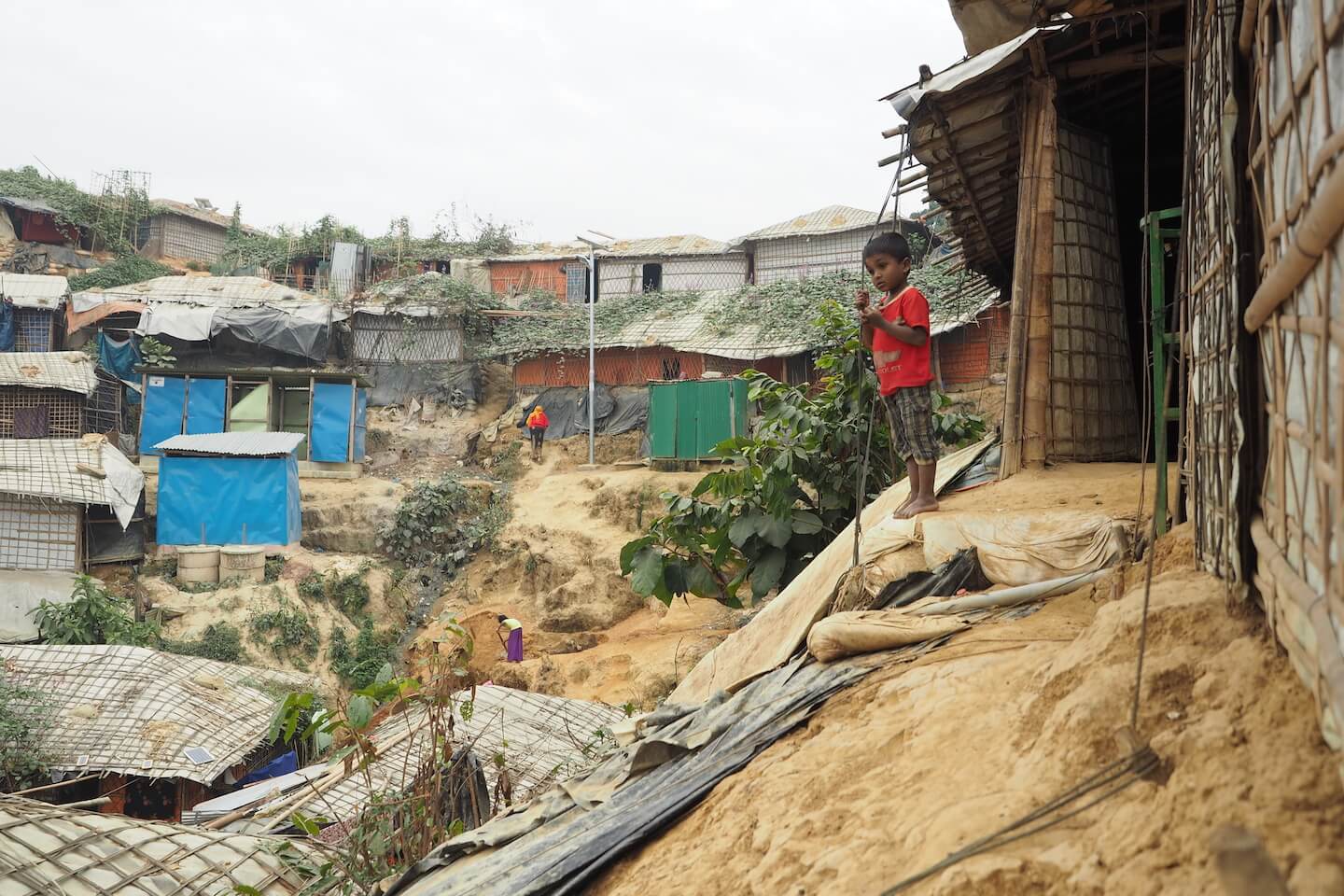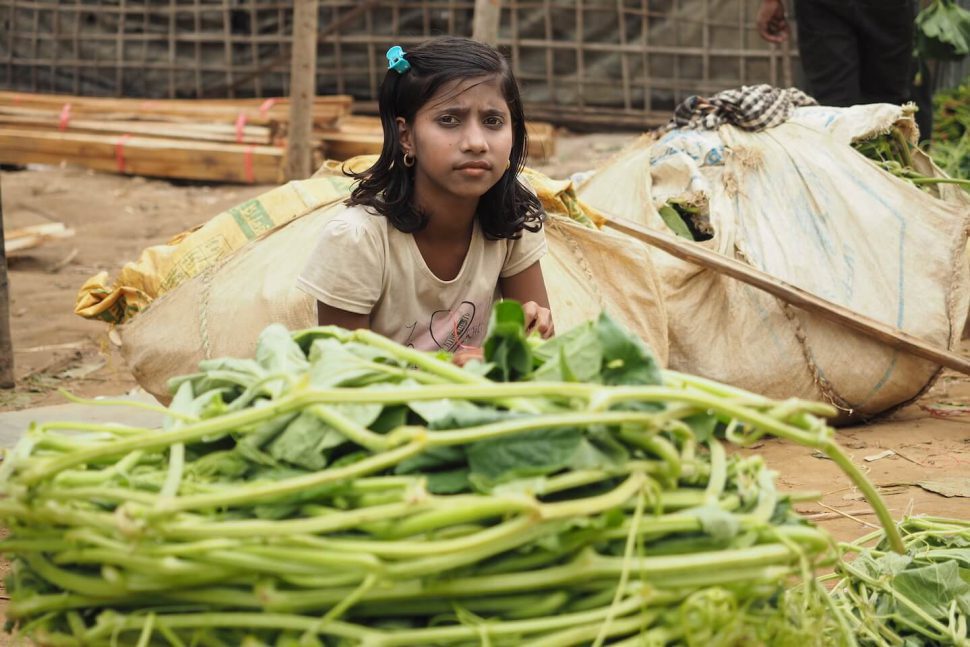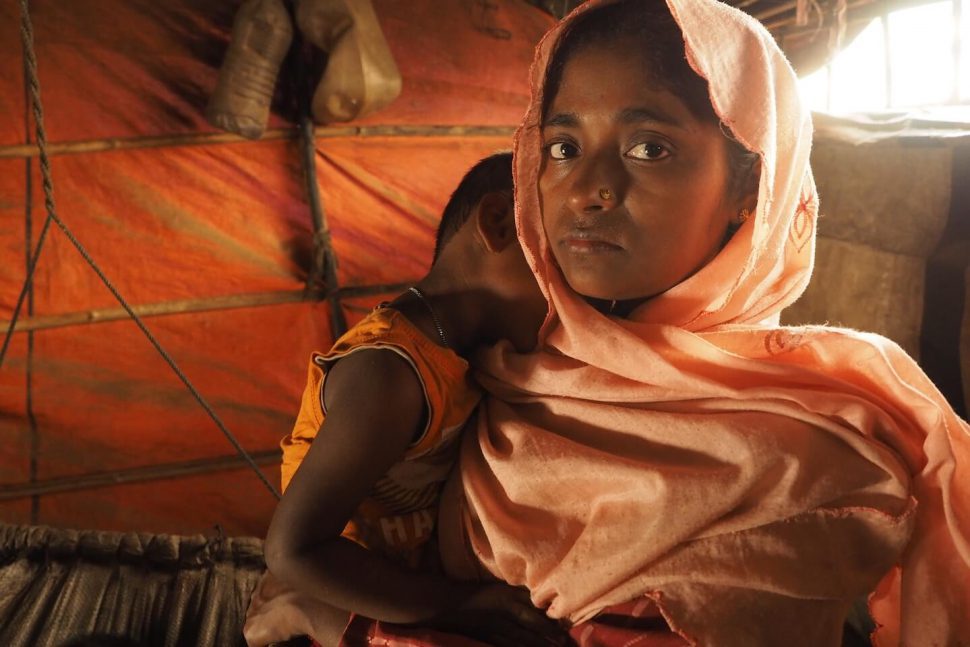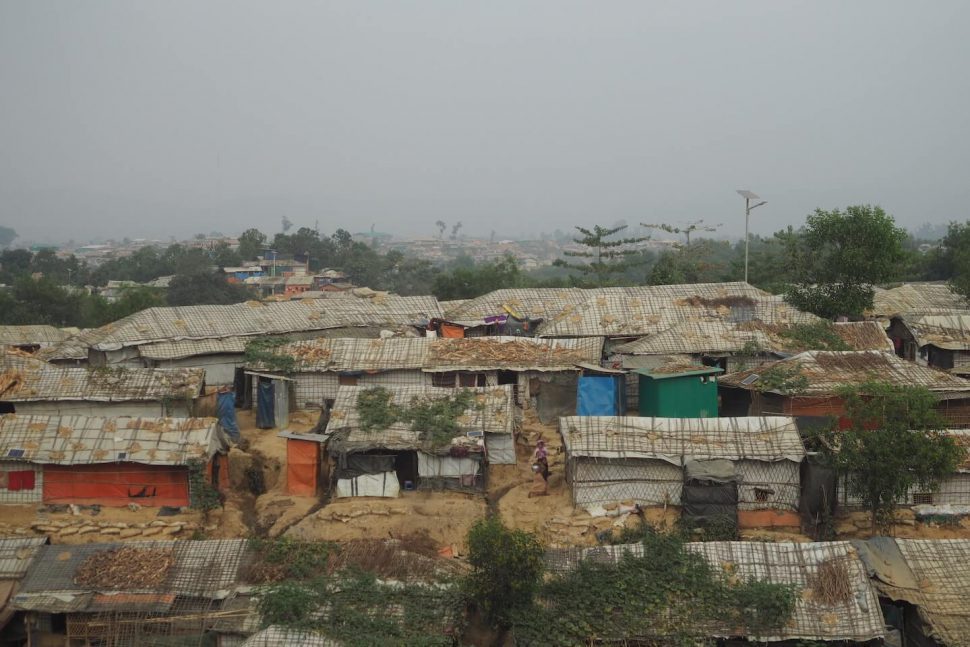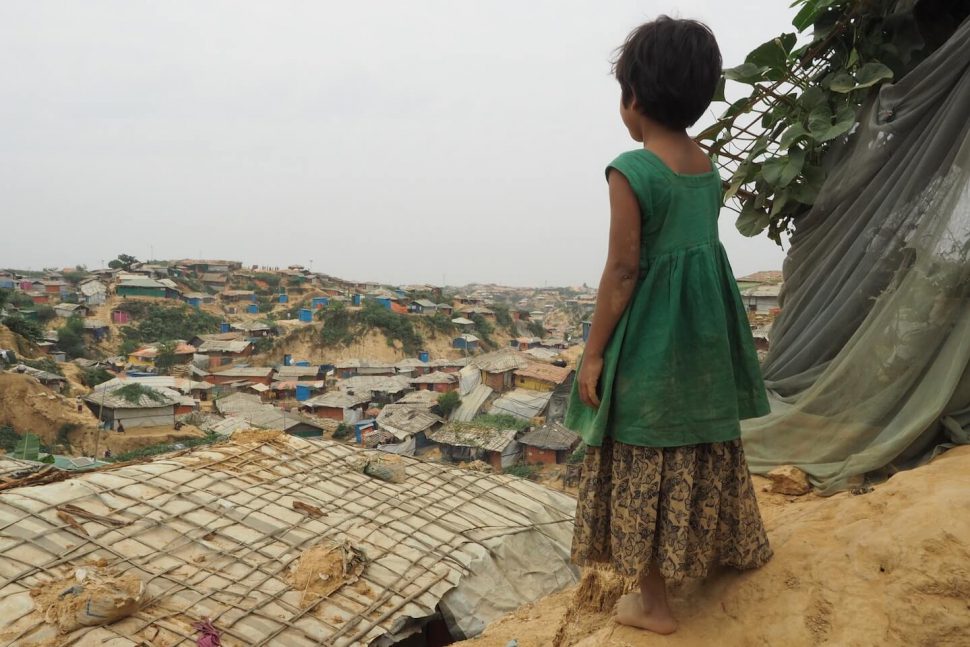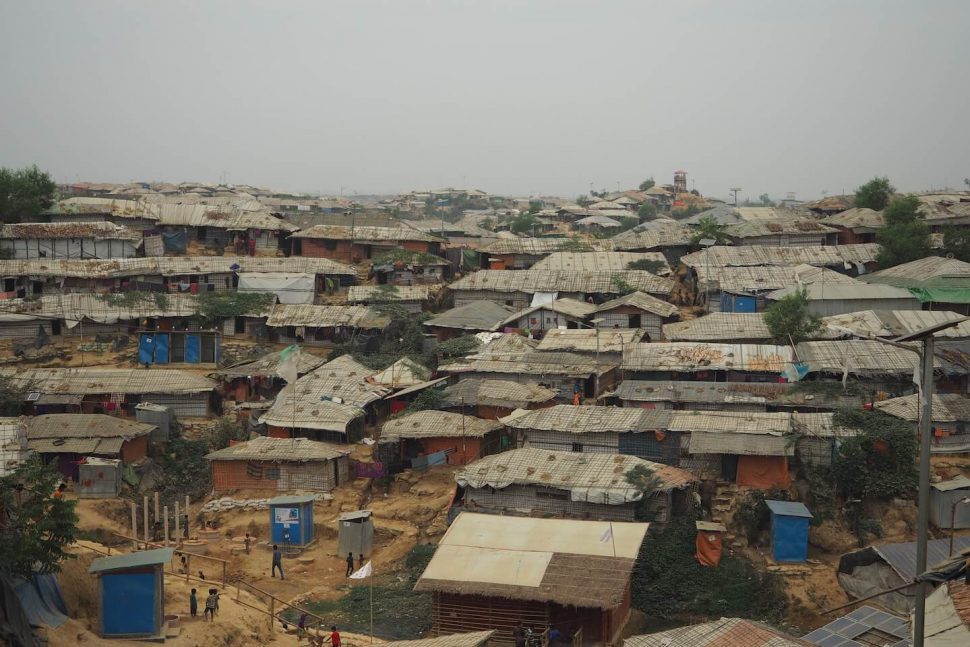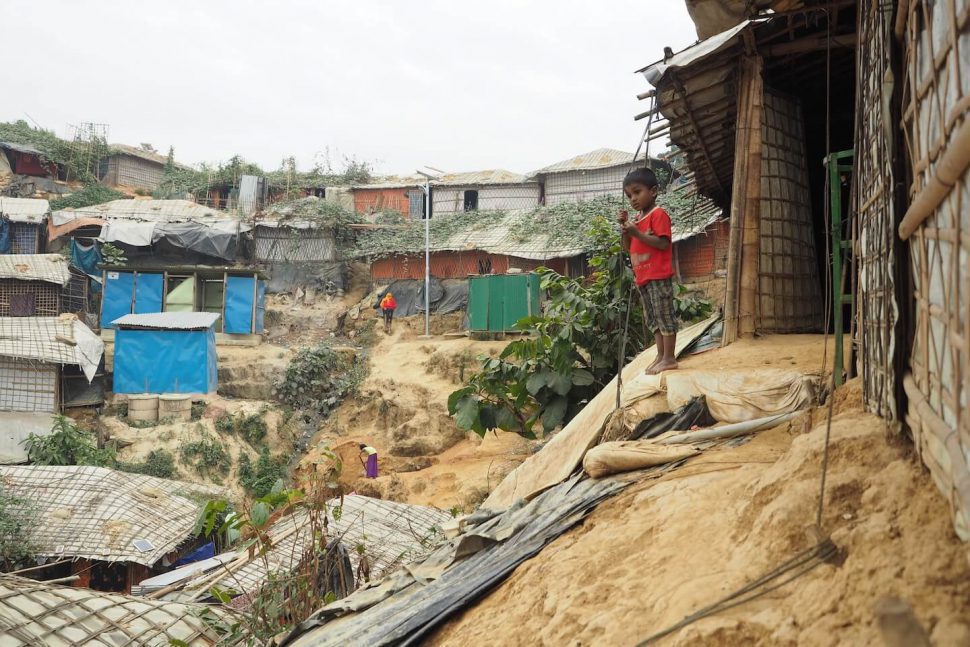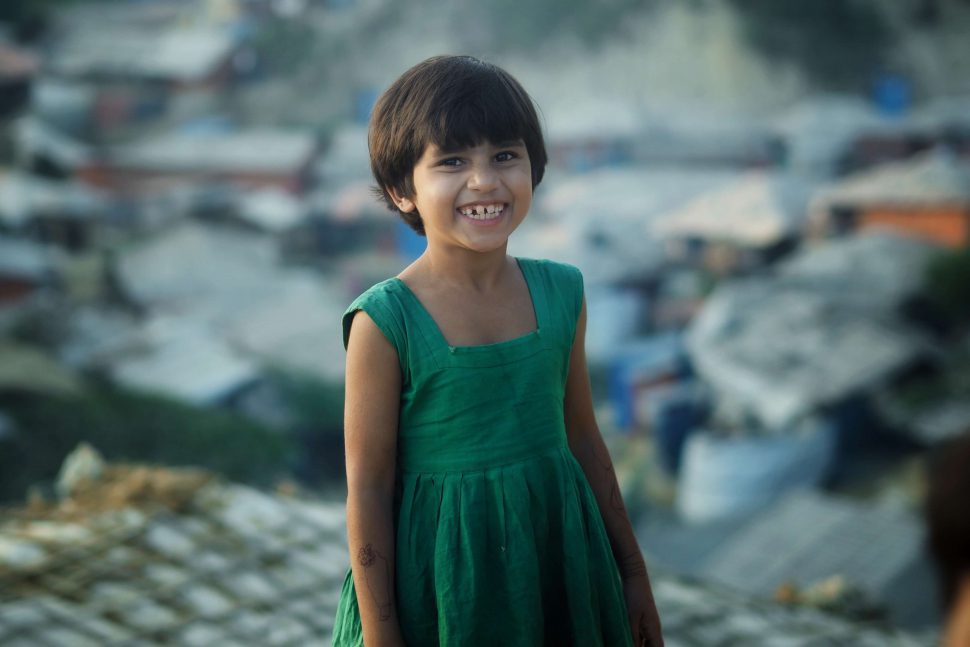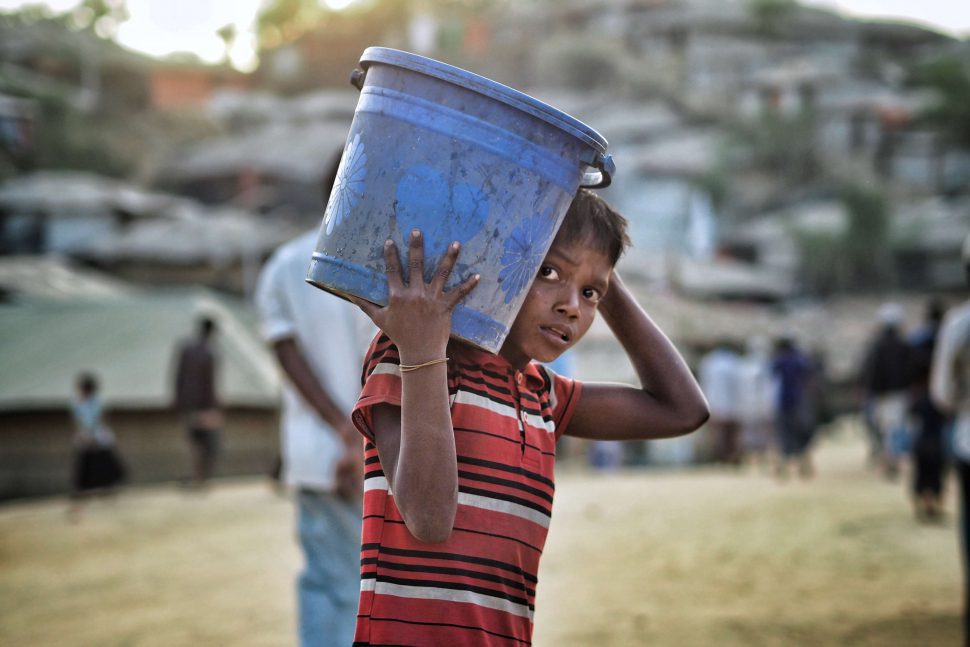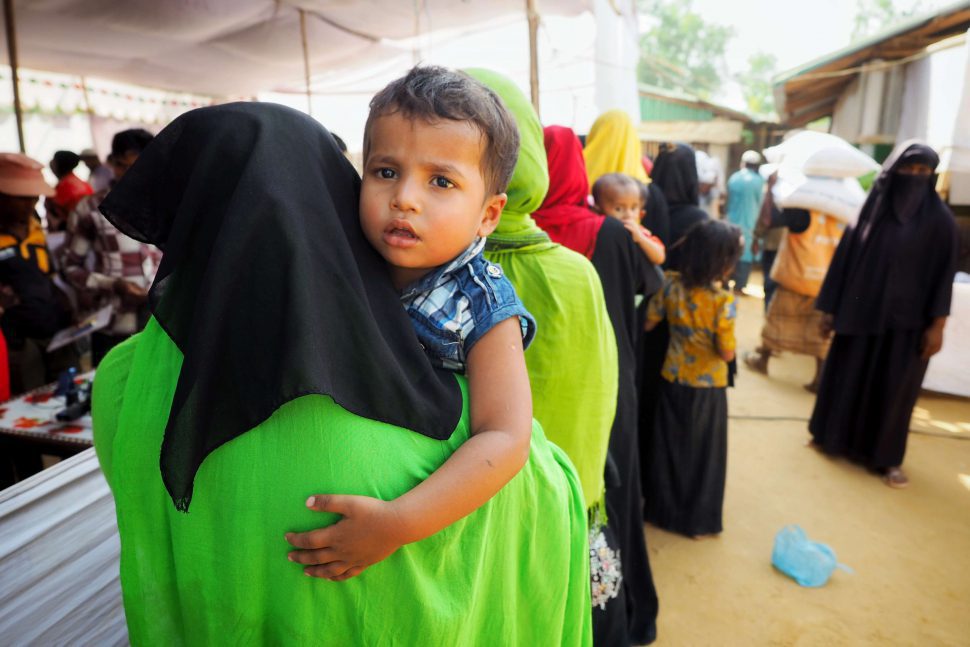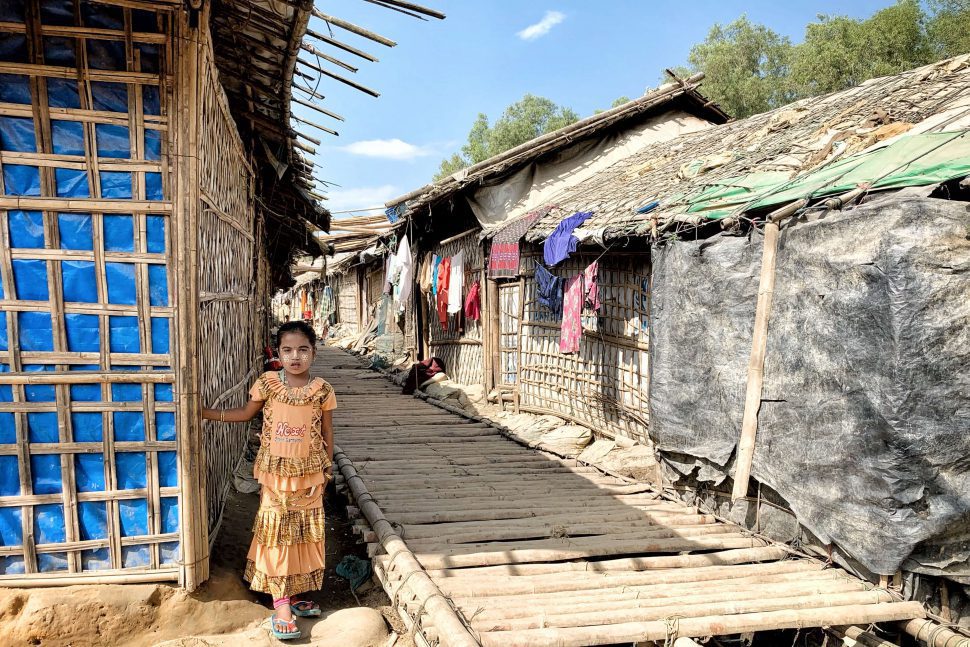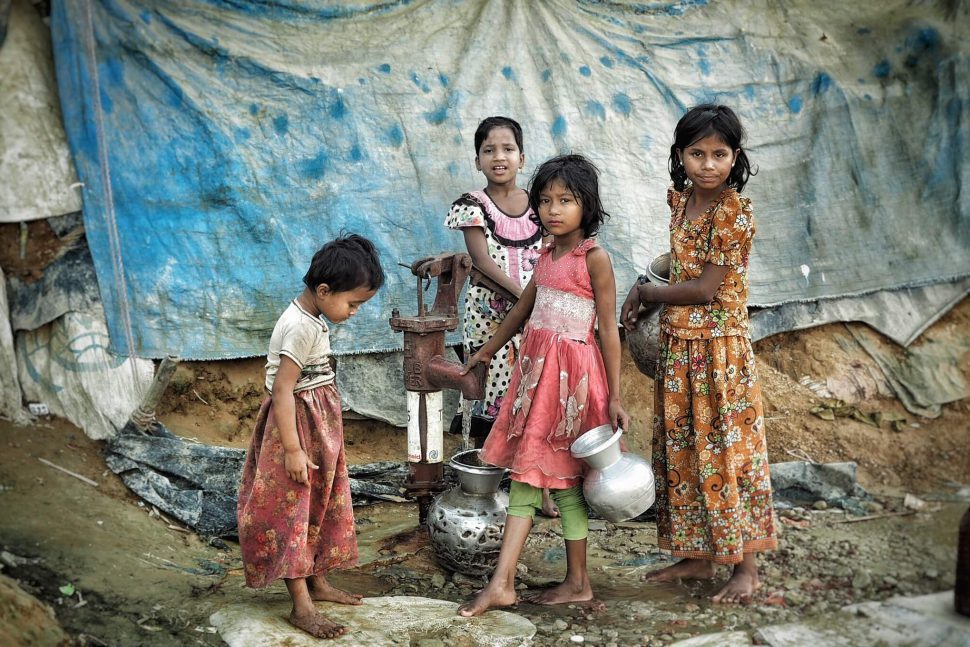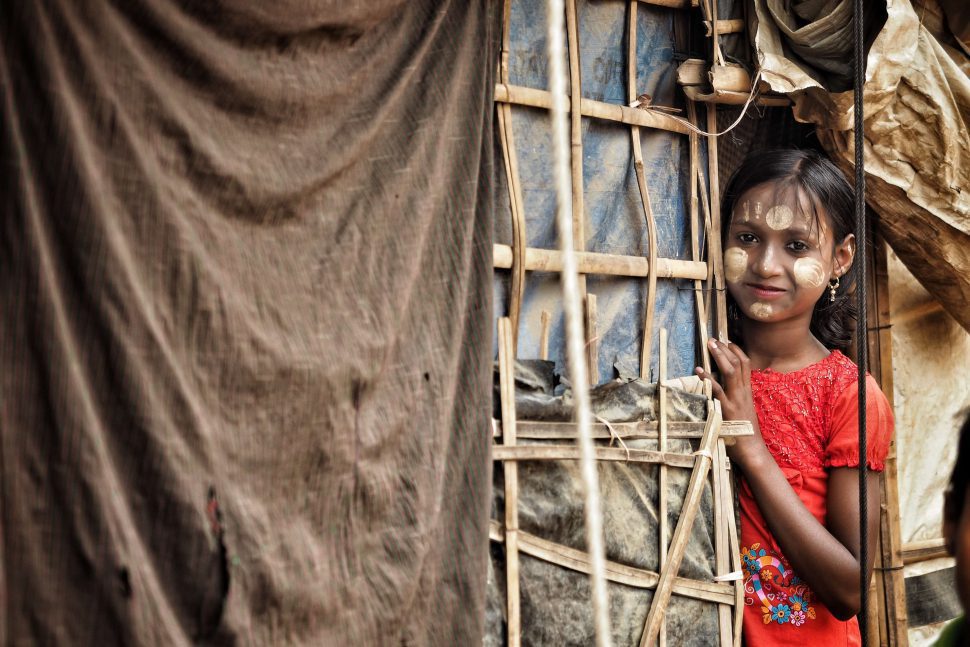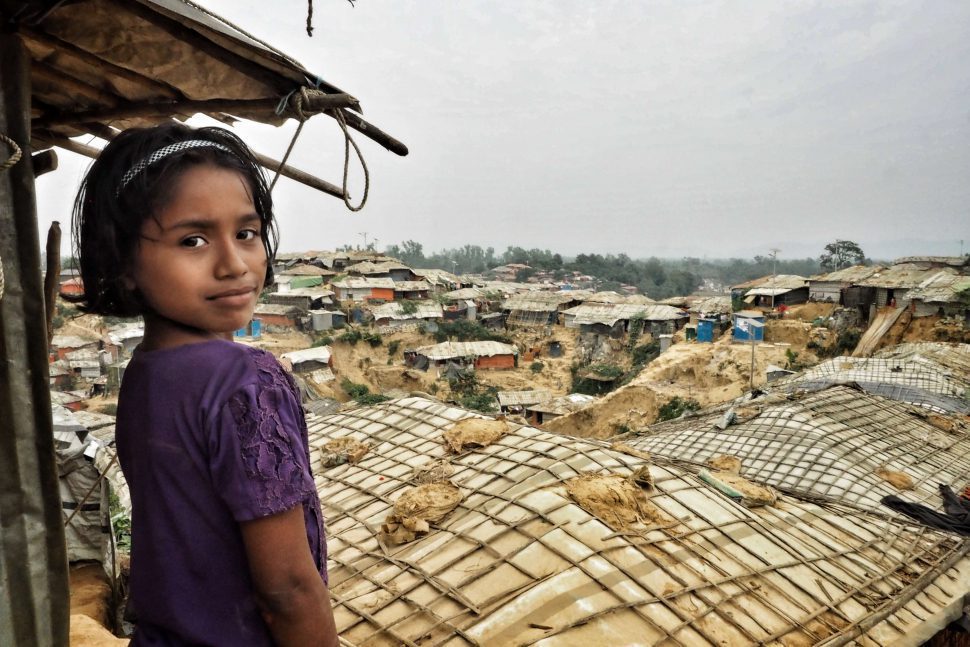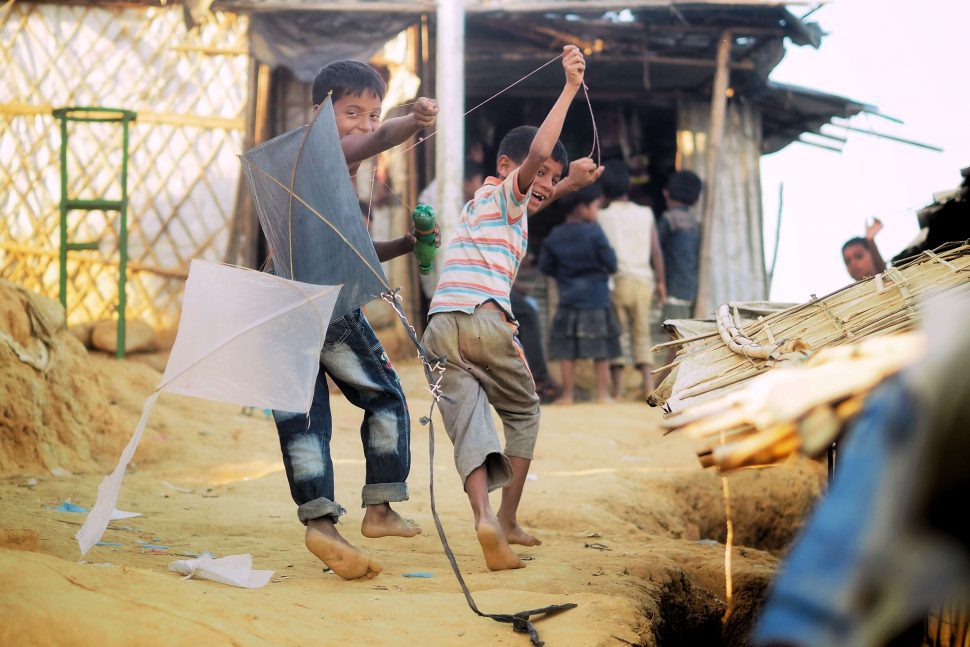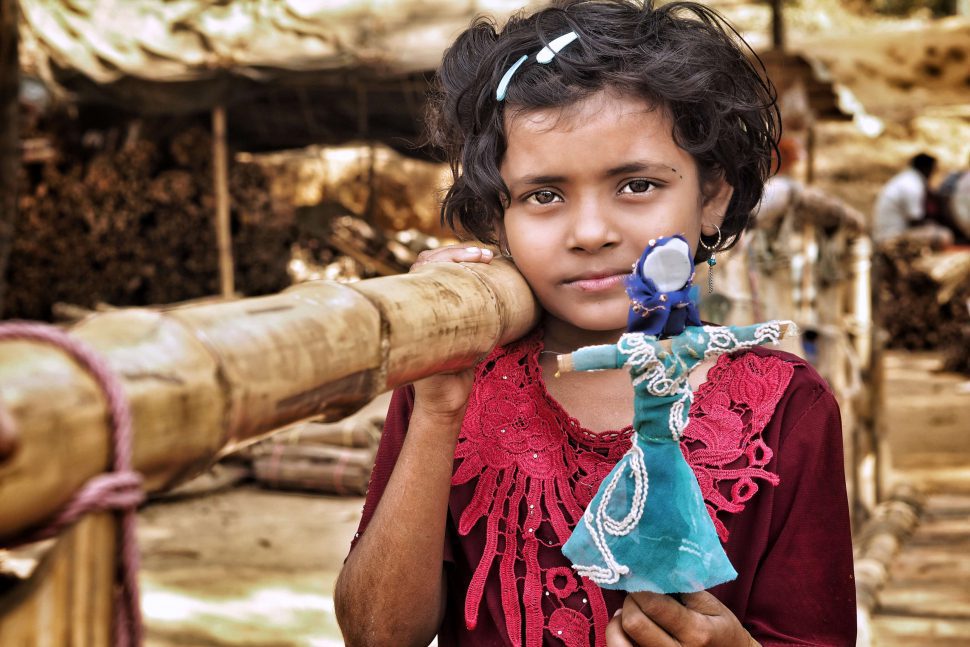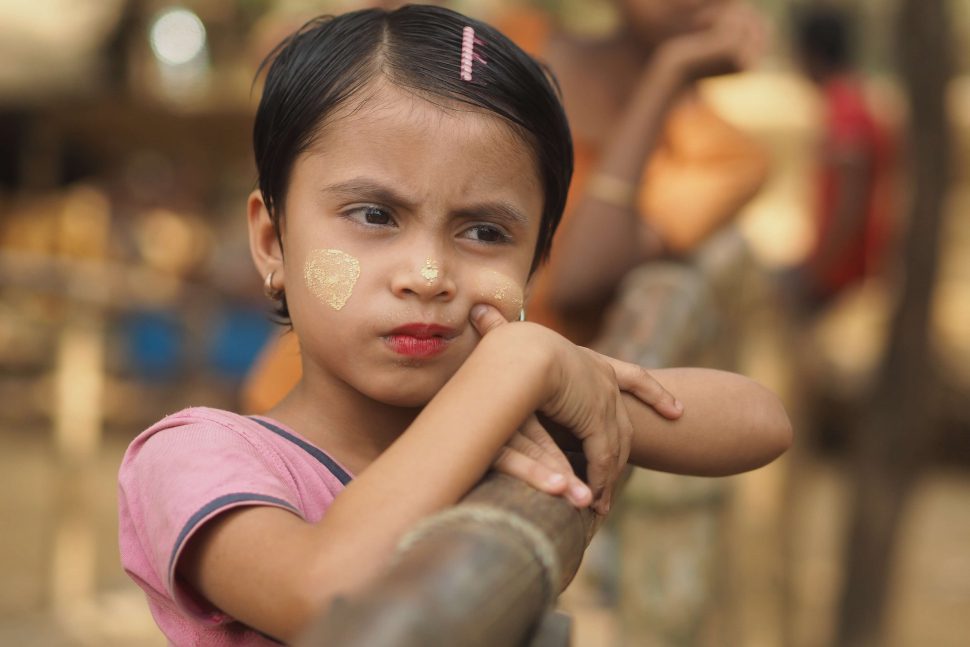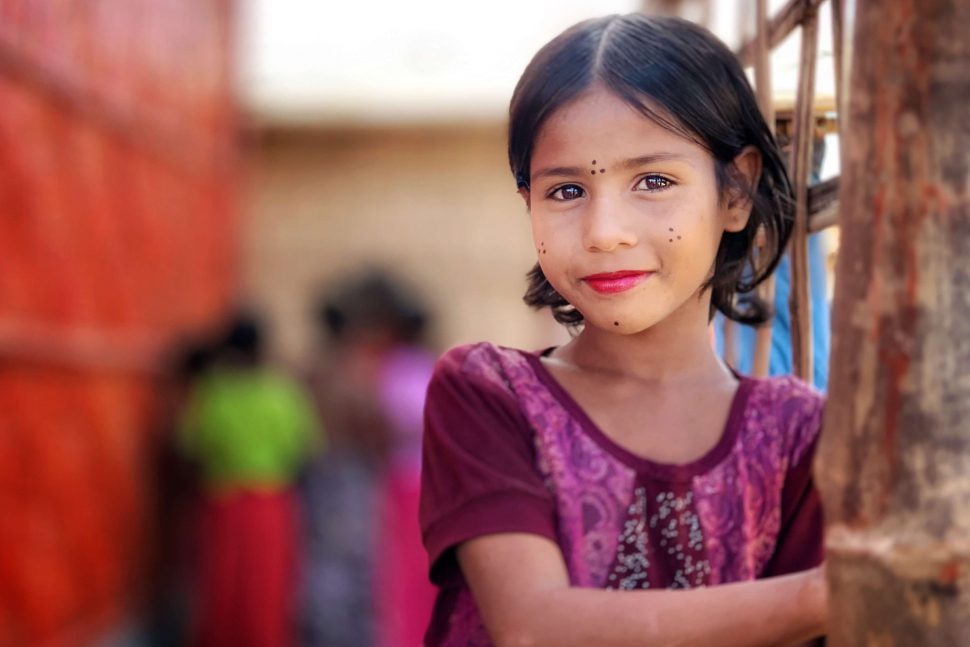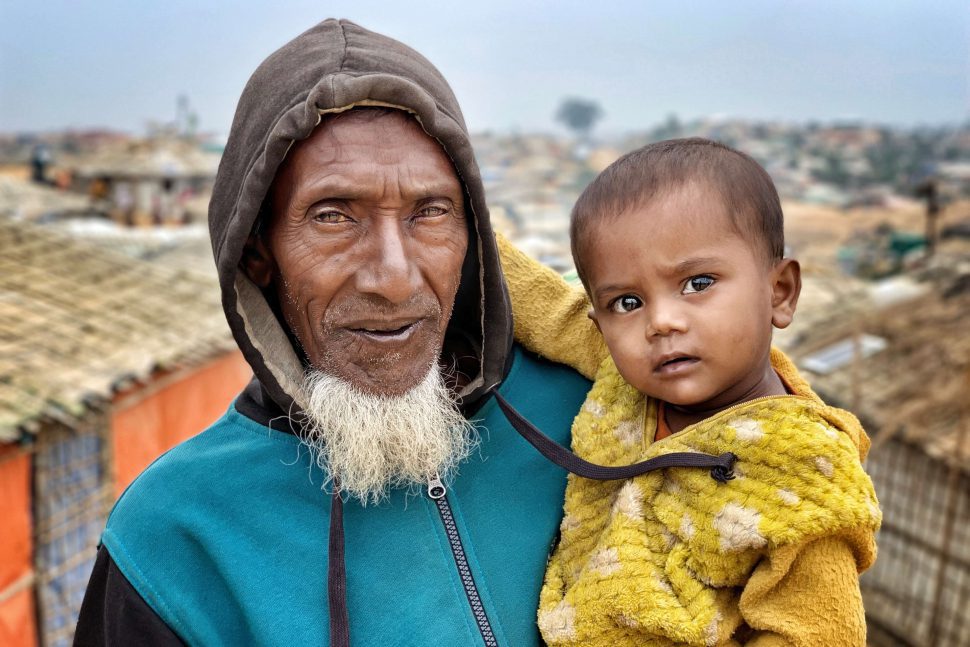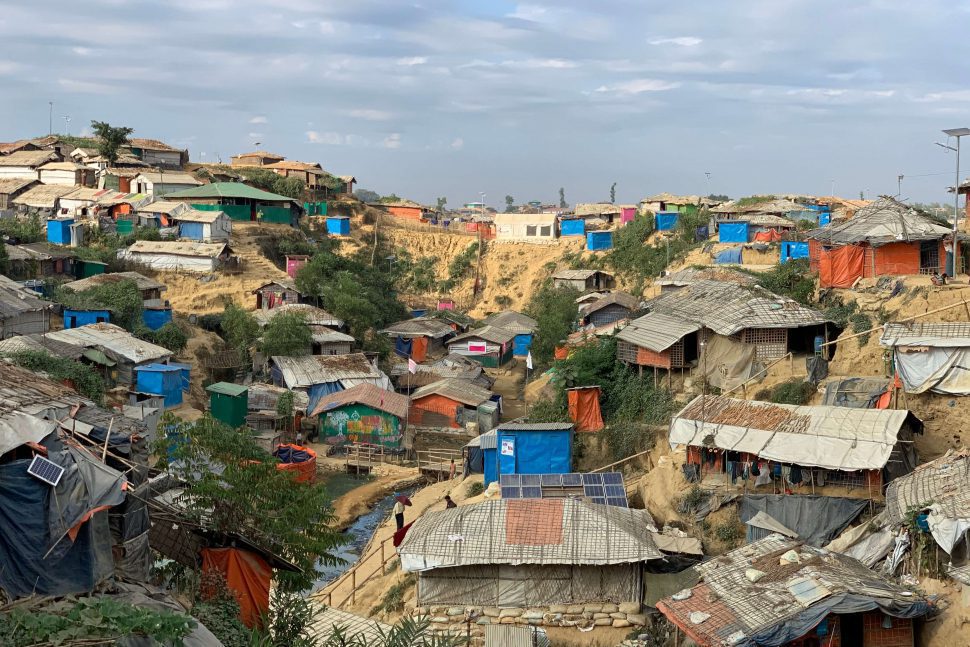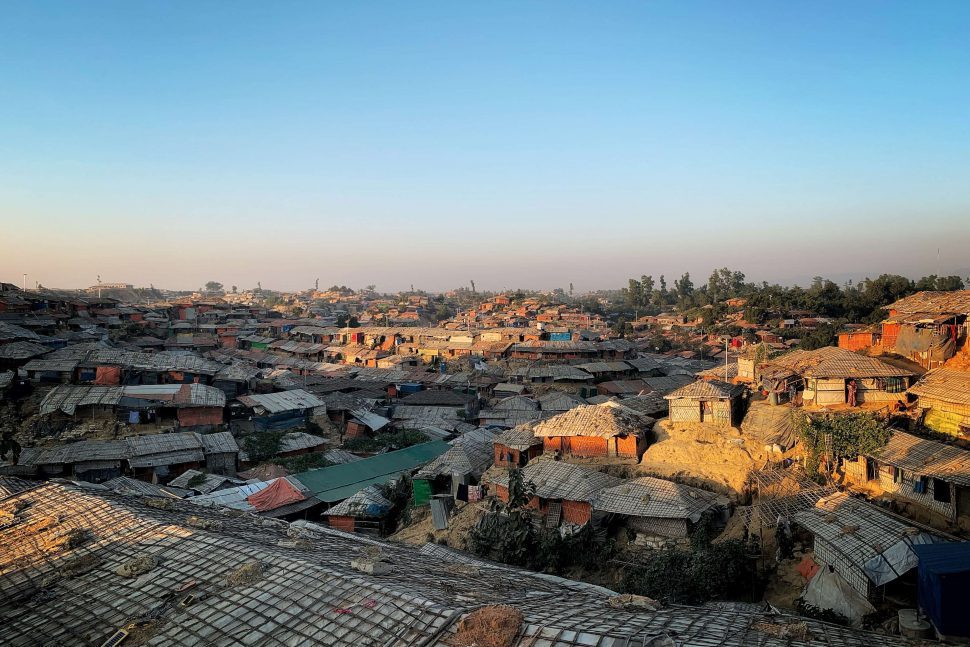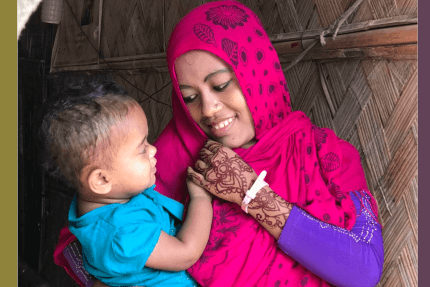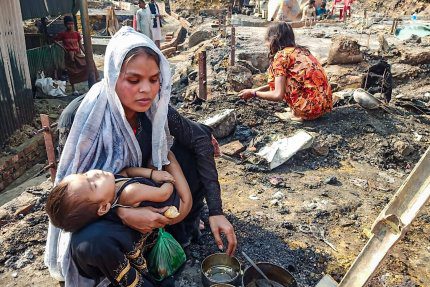At the end of 2017, Bangladesh had to accept about one million of Rohingya people. Today, they are the most persecuted ethnic minority in the world. They escaped death in Myanmar (formerly Burma), desperately looking for help. They are not considered citizens there, and apart from their rights, the authorities have also decided to take away their lives. Myanmar doesn’t accept independent observers, but satellite photographs confirm that there has been violence and destruction on a great scale. More than a million Rohingya from Burma crossed the border with Bangladesh, fleeing ethnic cleansing, cruelty that we cannot even imagine.
Cox’s Bazaar used to be the largest tourist town in Bangladesh, famous for its longest sandy beach in the world. Today, it is mainly the biggest refugee camp and the fastest growing refugee crisis in history.
In December 2018, we visited the Cox’s Bazar refugee camp in Bangladesh for the first time. We decided that our next Good Factory must be located here. There are no words to describe the conditions these people live in. The camp’s residents cannot leave, work, and their children cannot go to school. They still haven’t received refugee status as the government’s approach changes from one week to the next. Their needs are enormous but legal complexities make it difficult to provide help.
What do we do?
Project for families
Our first goal was to help people who’ve been through unimaginable cruelty finally experience some good. We wanted to make sure they weren’t hungry, strengthen them with a balanced diet, take care of their most basic needs, buy blankets, sleeping mats, wood fire. We work with families that have been through the most. They have come face to face with death and are having a hard time navigating the enormous camp on their own. We can’t help them all at once but we can feed them, alleviate their pain and help them rebuild their sense of dignity.
Refugee center
Our second goal was to create a safe space for children, a common area for them to rest, eat a meal, play, and just be children. In addition to offering elements of informal education, we also teached them about their dignity and how to protect it. We instilled the importance of good hygiene. We teached about basic safety rules and human rights, which they are entitled to in all social interactions, and that nobody has the right to hurt them. For their parents we offered workshops on positive parenting to raise their awareness about the dangers thhttps://www.dobrafabryka.pl/wp-admin/edit.php?post_type=ic-placeat threaten their children (e.g. human trafficking or child labor).
Our centre was taking in 100 children and youth until the first quarter of 2021, providing them with informal education, sewing lessons, a meal and a place to play.
On the 22nd of March 2021, a gigantic fire at the camp completely consumed our day care centre. Plans to rebuild it have been thwarted by another wave of the pandemic, a nationwide lockdown and changes to the way the camp operates, banning educational activities for children and young people. Currently, our work with children is not possible.
